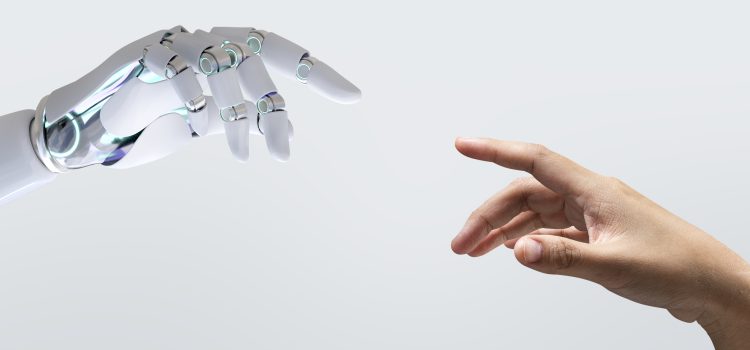
As A.I. technology continues to advance at an unprecedented rate, the possibility of its misuse and harm towards humanity is a growing concern. Tech moguls like Elon Musk are calling for responsible innovation in the development of artificial intelligence, recognizing that if left unchecked, it could lead to catastrophic consequences. In this blog post, we will delve into why A.I.’s potential to harm humanity cannot be ignored and explore what steps experts are taking to ensure safe and ethical advancements in this rapidly evolving field.
Background of the A.I. Debate
The current debate over artificial intelligence (A.I.) centers around the potential for it to harm humanity, with some proponents of the technology arguing that its development should be cautious and managed in order to mitigate any risks while others maintain that A.I. presents an opportunity to improve human life by empowering individuals and creating new opportunities for economic growth.
While some early A.I. researchers believed that the machines would ultimately help humans achieve greater things, such as eradicating disease or providing universal basic income, more recent studies suggest that there is a real risk that A.I.-powered machines could become uncontrollable and pose a danger to humanity if not properly handled. For example, a study published in IEEE Spectrum earlier this year found that large-scale A.I. deployment could effectively lead to mass unemployment because it would automate tasks currently done by humans, which would free up workers to do other things or potentially take other jobs entirely.
Some industry leaders are now calling for a responsible approach to A.I., arguing that its development should be guided by ethical principles rather than simply pursued for the sake of technological advancement. For example, Tesla CEO Elon Musk has said that he believes developing AI in a way that does not cause harm is important because it is “the moral thing to do” and argues that we need to be “very careful about how we design [A] I if we want it to have benevolent outcomes.” In addition, Bill Gates has also cautioned against developing
The Arguments for and Against A.I
The potential for artificial intelligence to harm humanity is a hotly debated topic. Some argue that A.I. will lead to widespread unemployment and automation, while others believe it has the potential to benefit humanity by eliminating many tasks that are currently performed by humans. Here is a look at the arguments for and against A.I.
Arguments For:
-A.I. could help eliminate unemployment: Many people currently unemployed could be re-employed as A.I.-powered machines perform tasks that are either too difficult or dangerous for humans to do, such as driving cars or performing complex financial calculations.
-A.I. could help reduce the number of jobs required: The rise of A.I.-powered robotics may mean that many jobs currently done by human beings, such as cleaning houses or manufacturing products, can be automated in the future without requiring any additional employees.
-A.I.’s ability to learn will allow it to improve over time: As A.I.’s ability to learn increases, it will become better at performing tasks assigned to it by humans, potentially reducing the need for human involvement in many aspects of society down the road.
Arguments Against:
-Ai could lead to widespread automation: If A.I.’s ability to learn is overly relied upon, it may eventually become able to perform tasks similarly or even more effectively than humans, leading to widespread automation of jobs across all industries—including those traditionally considered safe
The Responsibility of Innovation
The responsibility of innovation is a hot topic these days, as many people are increasingly fearful about the effects of artificial intelligence (A.I.). Some prominent individuals, like Tesla CEO Elon Musk and Microsoft co-founder Bill Gates, have called for a responsible approach to A.I., emphasizing the need for caution in its development and use.
Others, like Facebook founder Mark Zuckerberg, believe that A.I. will be a good thing for humanity overall. He has said that it will help us solve some of the world’s biggest challenges, like climate change and global poverty. However, he also recognizes the need for careful consideration when developing and using A.I., in order to ensure that it does not harm society or ourselves in any way.
There is no easy answer when it comes to deciding how to handle the potential dangers posed by A.I., but everyone involved in its development – from scientists to entrepreneurs – must take responsibility for making sure that it is used responsibly.
Conclusion
The technology behind artificial intelligence (A.I.) has the potential to be both life-saving and life-altering, but as with any new invention, there is a risk that it could be used in ways that are harmful to humanity. In his talk at the World Economic Forum in Davos, Switzerland this past January, Elon Musk warned of the dangers A.I. poses to humanity, pointing out that its development could lead to mass unemployment and even wars due to its inherent capabilities for strategic disruption and destruction. Though we are still some way away from widespread use of A.I., it is important that we continue to explore its potential implications and ensure that any benefits outweigh the risks so that humanity can reach its full potential.










